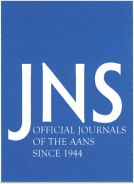Sports-related concussion is a change in brain function following a direct or an indirect force to the head, identified in awake individuals and accounting for a considerable proportion of mild traumatic brain injury. Although the neurological signs and symptoms of concussion can be subtle and transient, there can be persistent sequelae, such as impaired attention and balance that make affected patients particularly vulnerable to further injury. Currently, there is no accepted definition or diagnostic criteria for concussion, and there is no single assessment that is accepted as capable of identifying all patients with concussion. In this paper, the authors review the available screening tools for concussion, with particular emphasis on the role of visual function testing. In particular, they discuss the oculomotor assessment tools that are being investigated in the setting of concussion screening.
Summary Points:
- K-D Test is an assessment of visual function and integrity of attention.
- Healthy athletes tend to improve on K-D Test performance with repeated testing and following exercise.
- Any decline in performance (an increase in score time) compared with baseline testing is indicative of a concussion.
- K-D Test is an ideal sideline test since it takes less than 1–2 minutes to complete and can be administered by nonmedical personnel such as parents or coaches.
- Current evidence suggests that the K-D Test can serve as a complementary test to sideline concussion testing to increase the sensitivity.
- Ideally, a sideline screening assessment should be standardized, cost-effective, and able to be administered by nonmedical personnel, so that it is practical in both youth and high-school athletics, as well as collegiate and professional sports.

